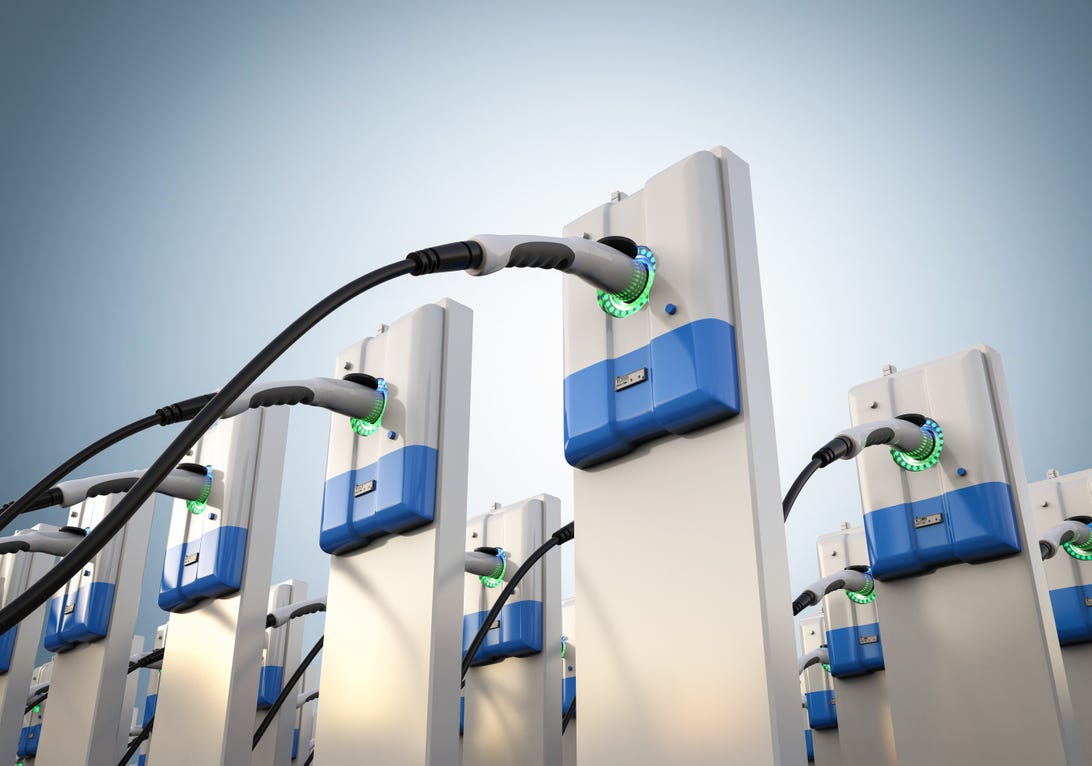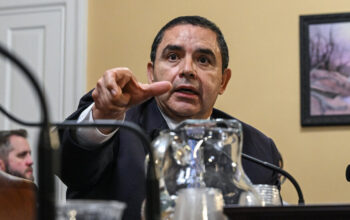
The US government is rolling out its multibillion dollar plan to spur EV charging station construction.
iStock / Getty Images PlusThe Biden administration is ready to get to work on its promises of building out a nationwide electric vehicle charging network with the announcement on Thursday of the National Electric Vehicle Infrastructure Formula Plan. NEVI will make $5 billion available to states over the next five years to help build out their charging networks.
While that sounds cool — and it is — it might be even cooler that part of the program mandates that 40% of the funds used benefit disadvantaged communities in accordance with the Justice40 initiative. That means that we should start seeing more charging stations in low-income communities, which will be a considerable benefit as electric vehicles become more common and affordable and, therefore, more accessible to those communities.
The NEVI plan is allocating $615 million in funds for 2022, with the disbursements already planned from now through 2026, with the caveat that the government has to approve the state’s individual plans for spending. Beyond the initial $5 billion, there is an additional $2.5 billion competitive grant program to further aid alternative fuel corridors and community charging systems. In contrast, that initial non-discretionary program focuses exclusively on alternative fuel corridor development.
The government is also extremely specific on how the NEVI funds can be used. For example, if a state planned a charging station that also had solar panels to reduce the operation costs of that station, that’s acceptable. However, beefing up local power grids with solar to handle the additional strain provided by chargers would be outside the scope of the NEVI program.
The goal of the NEVI plan is to kickstart the construction of the half-million charging stations that President Joe Biden included in his national energy strategy, which was announced in December of 2021. Will it be enough to spur actual development outside that funded by the feds, and will a wider availability of chargers increase the rate of EV adoption? Time will tell, but it seems like a good start.




